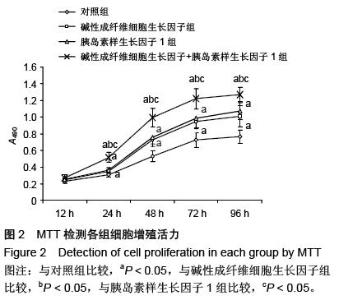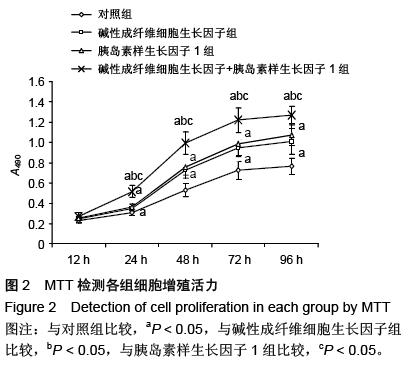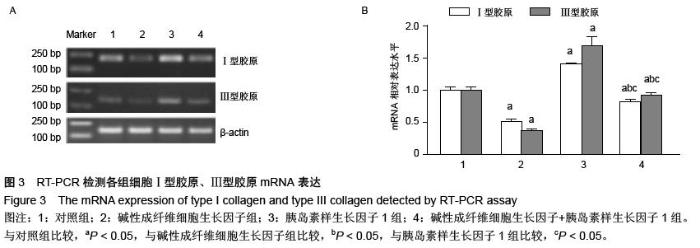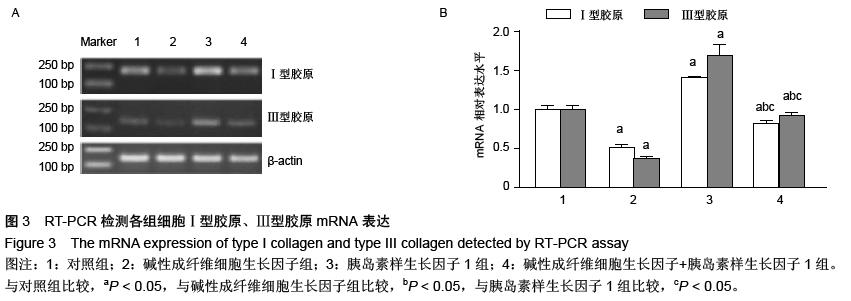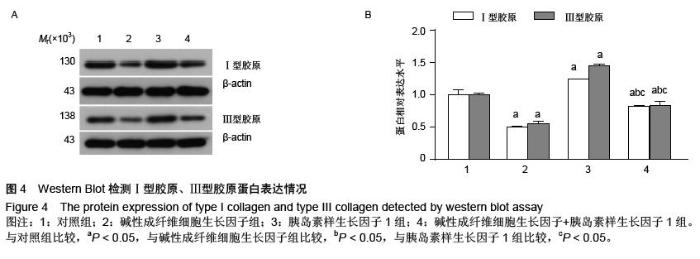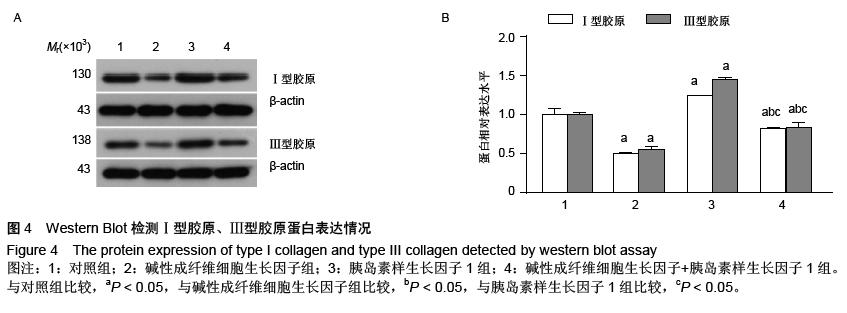| [1] Leoni G, Neumann PA, Sumagin R, et al. Wound repair: role of immune-epithelial interactions. Mucosal Immunol. 2015;8(5):959-968.[2] Hagemann JH, Haegele H, Müller S, et al. Danger control programs cause tissue injury and remodeling. Int J Mol Sci. 2013;14(6):11319-11346.[3] Hurtley S, Hines PJ, Mueller KL, et al. Skin. From bench to bedside. Introduction.Science. 2014;346 (6212):932-933.[4] Fabi S, Sundaram H. The potential of topical and injectable growth factors and cytokines for skin rejuvenation. Facial Plast Surg. 2014;30(2):157-171.[5] Wang H, Chen Z, Li XJ, et al. Anti-inflammatory cytokine TSG-6 inhibits hypertrophic scar formation in a rabbit ear model. Eur J Pharmacol. 2015;751:42-49.[6] Parekkadan B, Milwid JM. Mesenchymal stem cells as therapeutics. Annu Rev Biomed Eng. 2010;12:87-117. [7] Crane JL, Cao X. Bone marrow mesenchymal stem cells and TGF-β signaling in bone remodeling. J Clin Invest. 2014;124(2):466-472.[8] Alhadlaq A, Mao JJ. Mesenchymal stem cells: isolation and therapeutics Stem Cells Dev. 2004;13(4):436-448.[9] Augello A, Kurth TB, De Bari C. Mesenchymal stem cells: a perspective from in vitro cultures to in vivo migration and niches. Eur Cell Mater. 2010;20:121- 133.[10] Huang S, Wu Y, Gao D, et al. Paracrine action of mesenchymal stromal cells delivered by microspheres contributes to cutaneous wound healing and prevents scar formation in mice. Cytotherapy. 2015;17(7): 922-931.[11] Duffield JS, Lupher M, Thannickal VJ, et al. Host responses in tissue repair and fibrosis. Annu Rev Pathol. 2013;8:241-276.[12] Buchanan EP, Longaker MT, Lorenz HP. Fetal skin wound healing. Adv Clin Chem. 2009;48:137-161.[13] Lee DE, Ayoub N, Agrawal DK. Mesenchymal stem cells and cutaneous wound healing: novel methods to increase cell delivery and therapeutic efficacy. Stem Cell Res Ther. 2016;7(1):37.[14] Du L, Lv R, Yang X, et al. Hypoxic conditioned medium of placenta-derived mesenchymal stem cells protects against scar formation.Life Sci. 2016;149:51-57.[15] Doi H, Kitajima Y, Luo L, et al. Potency of umbilical cord blood- and Wharton's jelly-derived mesenchymal stem cells for scarless wound healing. Sci Rep. 2016; 6:18844.[16] Tong C, Hao H, Xia L, et al. Hypoxia pretreatment of bone marrow-derived mesenchymal stem cells seeded in a collagen-chitosan sponge scaffold promotes skin wound healing in diabetic rats with hindlimb ischemia. Wound Repair Regen. 2015 Oct 14. [Epub ahead of print][17] Abd-Allah SH, El-Shal AS, Shalaby SM, et al. The role of placenta-derived mesenchymal stem cells in healing of induced full-thickness skin wound in a mouse model. IUBMB Life. 2015;67(9):701-709.[18] Oh SY, Lee SJ, Jung YH, et al. Arachidonic acid promotes skin wound healing through induction of human MSC migration by MT3-MMP-mediated fibronectin degradation. Cell Death Dis. 2015;6: e1750.[19] Caruana G, Bertozzi N, Boschi E, et al. Role of adipose-derived stem cells in chronic cutaneous wound healing.Ann Ital Chir. 2015;86(1):1-4.[20] Chen D, Hao H, Fu X, et al. Insight into Reepithelialization: How Do Mesenchymal Stem Cells Perform. Stem Cells Int. 2016;2016:6120173.[21] Basiouny HS, Salama NM, Maadawi ZM, et al. Effect of bone marrow derived mesenchymal stem cells on healing of induced full-thickness skin wounds in albino rat. Int J Stem Cells. 2013;6(1):12-25.[22] Tan CQ, Gao X, Guo L, et al. Exogenous IL-4-expressing bone marrow mesenchymal stem cells for the treatment of autoimmune sensorineural hearing loss in a guinea pig model. Biomed Res Int. 2014;2014: 856019.[23] Snyder TN, Madhavan K, Intrator M, et al. A fibrin/hyaluronic acid hydrogel for the delivery of mesenchymal stem cells and potential for articular cartilage repair. J Biol Eng. 2014;8:10.[24] Kankuri E, Mervaala EE, Storvik M, et al. Exacerbation of acute kidney injury by bone marrow stromal cells from rats with persistent renin-angiotensin system activation. Clin Sci (Lond). 2015;128(11):735-747.[25] Delcroix GJ, Garbayo E, Sindji L, et al. The therapeutic potential of human multipotent mesenchymal stromal cells combined with pharmacologically active microcarriers transplanted in hemi-parkinsonian rats. Biomaterials. 2011;32(6):1560-1573.[26] Amarnath S, Foley JE, Farthing DE, et al. Bone marrow-derived mesenchymal stromal cells harness purinergenic signaling to tolerize human Th1 cells in vivo. Stem Cells. 2015;33(4):1200-1212.[27] Huang C, Orbay H, Tobita M, et al. Proapoptotic effect of control-released basic fibroblast growth factor on skin wound healing in a diabetic mouse model. Wound Repair Regen. 2015 Oct 21. [Epub ahead of print][28] Kondo T, Ishida Y. Molecular pathology of wound healing. Forensic Sci Int. 2010;203(1-3):93-98.[29] Kondo T.Timing of skin wounds. Leg Med (Tokyo). 2007;9(2):109-114.[30] Moulin V. Growth factors in skin wound healing. Eur J Cell Biol. 1995;68(1):1-7.[31] Xuan YH, Huang BB, Tian HS, et al. High-glucose inhibits human fibroblast cell migration in wound healing via repression of bFGF-regulating JNK phosphorylation. PLoS One. 2014;9(9):e108182. [32] Liao MH, Liu SS, Peng IC, et al. The stimulatory effects of alpha1-adrenergic receptors on TGF-beta1, IGF-1 and hyaluronan production in human skin fibroblasts. Cell Tissue Res. 2014;357(3):681-693.[33] Jacków J, Schlosser A, Sormunen R, et al. Generation of a Functional Non-Shedding Collagen XVII Mouse Model: Relevance of Collagen XVII Shedding in Wound Healing. J Invest Dermatol. 2016;136(2): 516-525.[34] Theocharidis G, Drymoussi Z, Kao AP, et al. Type VI Collagen Regulates Dermal Matrix Assembly and Fibroblast Motility. J Invest Dermatol. 2016;136(1): 74-83.[35] Shi H, Cheng Y, Ye J, et al. bFGF Promotes the Migration of Human Dermal Fibroblasts under Diabetic Conditions through Reactive Oxygen Species Production via the PI3K/Akt-Rac1- JNK Pathways. Int J Biol Sci. 2015;11(7):845-859.[36] Nagayoshi M, Taguchi T, Koyama H, et al. Enhanced neovascular formation in a novel hydrogel matrix consisting of citric Acid and collagen. Ann Vasc Dis. 2011;4(3):196-203.[37] Wang JJ, Liu YL, Sun YC, et al. Basic Fibroblast Growth Factor Stimulates the Proliferation of Bone Marrow Mesenchymal Stem Cells in Giant Panda (Ailuropoda melanoleuca). PLoS One. 2015;10(9): e0137712.[38] Colenci R, da Silva Assunção LR, Mogami Bomfim SR, et al. Bone marrow mesenchymal stem cells stimulated by bFGF up-regulated protein expression in comparison with periodontal fibroblasts in vitro. Arch Oral Biol. 2014;59(3):268-276.[39] Kinoshita T, Ishikawa Y, Arita M, et al. Antifibrotic response of cardiac fibroblasts in hypertensive hearts through enhanced TIMP-1 expression by basic fibroblast growth factor. Cardiovasc Pathol. 2014; 23(2):92-100.[40] Shi HX, Lin C, Lin BB, et al. The anti-scar effects of basic fibroblast growth factor on the wound repair in vitro and in vivo. PLoS One. 2013;8(4):e59966. |


